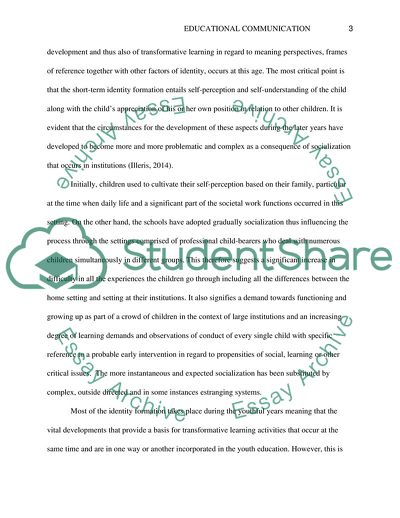Cite this document
(Transformative Learning in the Context of Children and Youth Education Essay Example | Topics and Well Written Essays - 1500 words, n.d.)
Transformative Learning in the Context of Children and Youth Education Essay Example | Topics and Well Written Essays - 1500 words. https://studentshare.org/education/1850075-educational-communication
Transformative Learning in the Context of Children and Youth Education Essay Example | Topics and Well Written Essays - 1500 words. https://studentshare.org/education/1850075-educational-communication
(Transformative Learning in the Context of Children and Youth Education Essay Example | Topics and Well Written Essays - 1500 Words)
Transformative Learning in the Context of Children and Youth Education Essay Example | Topics and Well Written Essays - 1500 Words. https://studentshare.org/education/1850075-educational-communication.
Transformative Learning in the Context of Children and Youth Education Essay Example | Topics and Well Written Essays - 1500 Words. https://studentshare.org/education/1850075-educational-communication.
“Transformative Learning in the Context of Children and Youth Education Essay Example | Topics and Well Written Essays - 1500 Words”. https://studentshare.org/education/1850075-educational-communication.


